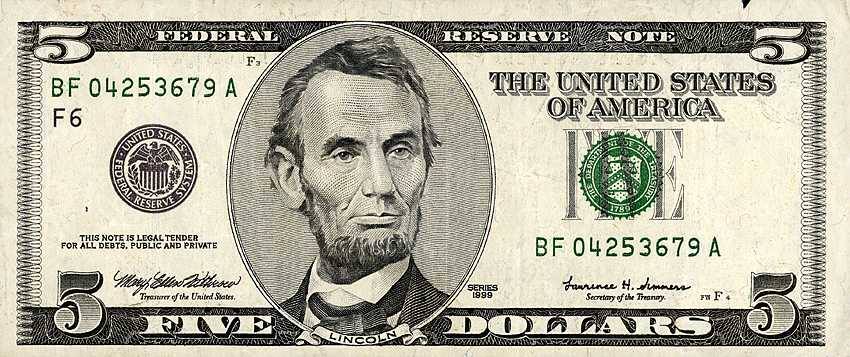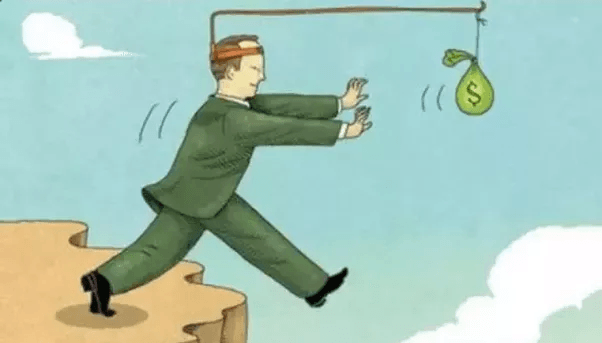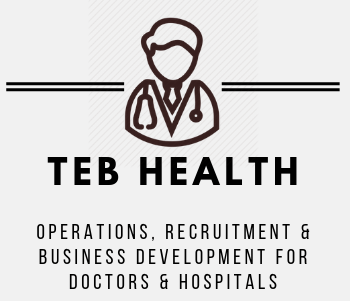Why Five Bucks is All it Takes to Save American Healthcare...as We Know It
- By Ali Shefizadeh, MD, FACHE
- •
- 26 Feb, 2020
- •

Why Five Bucks is All it Takes to Save American Healthcare...as We Know It
For years before I entered medical school or clinical administration, I would tell my family and friends that five bucks is all it would took to save American healthcare as know it. I remember interviewing for medical schools and everywhere I went, they would ask me the same question - What is the biggest problem of healthcare in the U.S.? Answer: Access and consistent quality of care. Response from interviewer: Bravo. But how did my answer or recognition of the problem solve it? It didn't. That's the point. We talk a lot but we are short of big solutions. To solve the problem of cost in American healthcare, we have to fix a lot of moving entrenched interests that would take many many hours to explain and of which I would be highly unqualified for. There are many parameters, like cost of drugs (remember that donut hole), costs of premiums, and those nasty deductibles and of course, the maldistribution of physicians (too many in Beverly Hills, less so in Chino Hills).
So if you want to solve healthcare, we have to be creative. I am the first to admit that my proposal here is just a start, but I think that's all we need. We need to start somewhere and for that, I think my plan is good enough. If every man, woman and child in the U.S. contributed at least five bucks to their own healthcare (for the case of this proposal, I focus on Medicaid), every month, for a set of benefits that include for example up to 1 visit free/month and every visit after for an extra five bucks, we would begin to solve healthcare in a big way. Not only would medical utilization go down but we would save Medicare and Medicaid and governmentally sponsored healthcare as we know it for future generations.
The way I propose it is something like this. Right now, if you make something like up to twice the federal benchmarks for poverty (which you would qualify for even if you have a full time job at let's say Walmart and have a small family), then you get free health insurance. Basically, your employer e.g. Walmart or McDonald's uses the government to subsidize their salary to you. They pay you a small salary they know is not livable for a family of four and you in turn apply for governmental benefits that kick in and help pay for health insurance in the form of Medicaid. Then they turn around and pay the government close to nothing in taxes and you and the U.S. government turn out to the only real sore losers. The winner is the big American corporation talking about climate change, community and responsibility but doing the opposite for their own employees. All you need to see is Jeff Bezos's ironic and rather mind blowing pledge to give 10 billion bucks to address climate change while his company pays many hard working employees minimum wage and sends you big boxes with Amazon labels on them to carry a small shampoo you bought with Prime. A bit hypocritical, isn't it? Nothing like this can show responsibility like talking big but doing something quite the opposite.
Now what if every person, including children whose parents are responsible for their care, chipped in just five bucks a month - the equivalent of a McDonald's value meal - to their own governmental healthcare plan. The point here is not the money alone, but the idea of contributing to your own care and being monetarily invested in it. Numerous studies at management schools I couldn't dream of getting into like Stanford and Harvard and Yale have pointed out that being invested in anything you do helps, repeat helps, you realize its value in a more appreciable way. So if I pay for the coffee I could get for free, I am more likely to value it.
Some of my colleagues may accuse me of elitism for saying this. How dare you, they say, advocate for the poor to pay for their healthcare even a little bit when you are a doctor and high income person with no grasp of the little guy.
And my answer is: Well, that is not true. Far from it, my family and I got on welfare when my dad lost his job and I was a kid and even at the ripe age of 33 years old (note: that was not very long ago), I was on Medi-Cal between jobs and I can tell you that I have a firm appreciation of living paycheck to paycheck and also of not having healthcare.
At the age of 27, while a UCLA medical student without health insurance, I ended up in the USC LA County Medical Center for anaphylaxis to antidepressant medication I had just been prescribed. If you still think I don't get it, I can't help prove to you my empathy and care other than to say that I believe basic healthcare is a right, and should not be a privilege for anyone. But remember, what you define as basic and what I define as basic may be two different things, and that my friends, is a story for another day.
Which brings me to this point. If every man, woman and child paid five bucks towards their healthcare, what would it mean in numbers.
Well, let's do some simple math. Right now 74 million people, roughly are enrolled in Medicaid alone. We are only talking about Medicaid, not Medicare.
74 million x 5 bucks = 370M a month and over the course of the year = Approx 4.5 Billion. Now that's not a lot in the scale of the federal budget. In fact it is less than a drop in the bucket. But now apply savings garnered from substantially lower usage of healthcare and added revenue from those extra visits to the doctor beyond the one covered once a month and preventative care (we will call this the "essentials").
Why you ask is there an upfront cost and then another for tiered usage? Because when you pay for something, even a little bit, you believe in its value to a greater extent. This is not an elitist view. This is human nature, biology, just how are brains are wired. If you asked for tea or a doctor visit and I said it is free and your usage is unmonitored, you are more prone to throw that tea away or drink it and feel like it was not so special. In the case of the doctor you will use it, seek less ways to apply preventative treatment when applicable and generally use it without care for the impact it has on others e.g. wait times. The moment I introduce a cost into the question, however small, you start thinking about it more and while you should have access to care, you are more diligent in how you use that access.
And here comes my final point. By applying the above formula just for Medicaid alone and putting in place a process that rewards ownership (it is your health, damn it) and personal accountability, we start the process of addressing costs of healthcare that are now close to 20% of GDP. In fact, I think I have a politician in mind that is new to this game of politics and has been president for three years now and would be the perfect person to introduce these cost reductions. Framed right and given with humility, I think my plan is the start of big changes to healthcare. There are definitely other issues, like overuse of medical technology, drug prices and insurance price gauging, but I guarantee you that this plan will actually save us money and go a long way towards addressing the American healthcare dilemma. With love and healthcare for all.
If you have comments, questions, or just want to tell me how I can be of resource to you or your healthcare organization, feel free to email me at asz@tebhealth.com or visit tebhealth.com Thanks for reading and don't forget to follow me on LinkedIn as I always enjoy sharing the straight talk with you.

Question: What is the biggest cause of bankruptcy in the US? (HINT: This is highlighted in the media)
Answer: Medical Bills
Question: Is that what this blog is about? Answer: Not at all, because you already know that.
Beyond the cost of medical bankruptcy to consumers, the cost of bankruptcy and "oops" moments for providers and the health systems they operate within is increasing too.
With the rising cost of the business of medicine, decreasing reimbursements, ever-increasing reporting and data entry requirements (aka why your doctor keeps typing when you are speaking to him/her), and dealing with insurance companies, doctors are having a harder time collecting and having to hire more people to chase the bills for them.
Which is why more and more doctors are giving up on the idea of having their own practice in favor of working for mega-groups or health systems. In a 2018 article in the New York Times titled "The Disappearing Doctor: How Mega-Mergers Are Changing the Business of Medical Care," the authors write on how new deals and mergers involving major corporations "loom over doctors’ livelihoods, intensifying pressure on small practices and pushing them closer to extinction."
The idea is simple in theory: if you merge systems and supposedly overhead, you decrease costs. But as a recent example from Wayne State University's Faculty Practice Group shows, this is not so simple after all. The group, one of the largest, filed from bankruptcy protection last November and the university is on the hook for over $16M as part of the reorganization plan.
Why is this? According to a recent article in Modern Healthcare, "Over the past decade, UPG's number of physicians declined by 50 percent, which hurt clinical revenue and made its leased network of suburban offices untenable, the filing said."
In the same NY Times article I cited here, a doctor named Dr. Navya Mysore is highlighted. She speaks about being frustrated working for a large healthcare system, and moving to One Medical, a venture-backed practice.
As a clinician or health system leader, this information lends itself to one reality. You need to save for a rainy day fund and align your organization and clinical group to meet the same mission. Too many times, contracted physician costs pile up without bringing in the reimbursement to meet them. Hint: RVU and physician compensation based on productivity is not emphasized nearly enough.
Too many times as well, business development and appropriate recruitment of patients lags far behind fancy operations and new approaches to customer service. While service is still king, so is investing in business development if you want to remain relevant in your service area.
After all, even when the doctor joins the big fancy group like Wayne State's, that is no guarantee they will know how to manage.
If you like what you read here, make sure to subscribe to get my blogs delivered to your email. Also share about TEB and what we do to develop doctor's businesses through TEB Health and develop future budding doctors through TEB Academy to your friends and family.

To get in front of the line, you can take a willing donor who wants to be paid. If not, you still get a place in the line but it may take longer. Is it fair? No, but neither is life.
Disneyland does this with flash pass. I guarantee you that I will get a lot of responses about how unethical this is, but consider that patients already desperate for organs travel to 3rd world countries to get these organs at enormous personal risk.
There, donors are paid. Is it right? No, but neither are a lot of other things we witness daily.
When choosing between life and death, I choose life and giving patients choice. #travel #countries #risk #life #things #personal #fair #world #take #choice #donation
More here: https://www.washingtonpost.com/national/health-science/a-daughters-gift-to-her-mother-saves-two-live...



Big title, right.
But what does it mean?
Have a goal, a strategic direction for your life, something you want. Settle on it and when obstacles come your way, don't let them get to you.
How do you do this?
Think of it this way. I listened to a speech by Simon Sinek where he said if you know your destination, you won't be dissuaded if I put a chair in front of you. Why? Because you go around the chair, around the obstacle, to your destination. It doesn't matter the steps, or the extra ones you took to go around my obstacle. You wanted the goal so badly, you used your creativity to overcome the chair being placed in front of you.
What if you will go to any destination without a target or goal? That same chair or obstacle I place in front of you now becomes that which stops you from either moving forward or making it so you start heading into a new direction.
Moral of the story. If you own or manage a hospital or healthcare organization, having a strategic goal and vision is equally important. If you are a student, it is similarly important. If you are a professional or executive, it is how you overcome the annoying things that come into your life while staying laser focused on the goals and not complaining.
Best wishes to all of you, and if you like these ideas - visit me at TEBHealth.com or TEBAcademy.com
Better yet, contact me at shefizadeh@TEBHealth.com if you would like me to coach you, speak to your leadership group, or simply share with you my thoughts on a business proposal or expansion plan you have. I hope I can be in service to you.
Thank you.

Keep Busy or Die Early
My parents have always taught me to keep busy. Pack your mind with so many positive things and activities so that it feels like a packed can of sardines! Don’t give your mind time to think about useless thoughts. Don’t let your boredom cause you to create or rehash or rethink what if scenarios of what you/someone else said or did or meant.
Case in point. In 1978, Dr. Bruce Alexander, a Canadian psychologist did a Rat Park experiment that led to a major breakthrough linking environment to addiction. He and his research group took a group of rats and put some in one cage and others in another cage, all the same species so you have similar rats in both cages. One of the cages was like Disneyland or what he called Rat Park inside, full of activities. The other case was like a third world country prison. In both cages, the researchers attached various drugs to the cages (so the rats could self-inject themselves with drugs) and watched to see what each of the two rat groups would do. The ones with the activities in their cage tried out the cocaine/heroin/amphetamine but they never came back for seconds. Why? Because they had too much to do. What about the rats in the cage with nothing to do but inject the drugs? Well they became addicts and died.
Addiction or bad habits are a product of a person’s environment that feeds the addiction. Feelings of hopelessness, lack of control, or unsatisfactory living conditions can make a person dependent on substances. Under normal living conditions, rats and yes, humans, can resist drug and alcohol addiction.
Moral of the story – surround yourself with positive ways to make an impact, influence and help others so you have no time to think about old and redundant matters like who said what and what they could have meant by it.
About the Author: Ali Shefizadeh is a healthcare executive with 10-plus years’ experience in healthcare administration, clinical medicine (trained as MD) and leadership roles as hospital CEO and COO. He is a UCLA trained physician who went into medical school because of intellectual ability and desire to help patients and ended up wanting to manage people and healthcare organizations. Ali is highly motivated and desiring to make critically needed change management, operations optimization, and strategic goal-setting needed to reach goals. He is focused on re-establishing financial stability, growth, and increasing market share for healthcare organizations, helping them reach a dominant market position in their chosen service area. To read more about Ali and his work helping hospitals and clinics visit TEBHealth.com and to see more of what he does to help students visit TEBAcademy.com
To read more entries like this, read Ali's book on Amazon: Fear Not, Grasshopper

Choose Health, Not Wealth
Health as measured by values and compatibility can last forever (as long as you live) if it is grounded in a person’s upbringing, but wealth can be built quickly and can fade quickly. It can also keep you happy momentarily but not in the long run.
There is a story about the prophet Muhammad that reflects this. As the most powerful man of his time, Muhammad had many suitors for his daughter, Fatima. When the time came for her to get married, he looked around at whom he could trust with his precious angel. Ali, a young child whom he had raised but who had nothing of material possession came to mind. The prophet asked Ali what he could offer as far as a stable life and material wealth for his daughter, Fatima. Ali said he had nothing. Muhammad shakes his head and replies to Ali: you have something much more valuable. You have your values, ethics, and you are a good man. Muhammad tells Ali to sell his armor, the one protecting his body, and use the funds to help finance the marriage initially. Ali goes to sell the armor and once he tells the story of what happened to the trader buying it at the local market, the trader gives him the gold coins for the armor and the armor too.
Moral of the story - Even when you want to marry a Prophet’s daughter, wealth means nothing. Focus on a true measure of health within you as measured by your values and compatibility with another human being. Focus on what you both like to do, what kind of furniture you both like, how your parent’s relate as compared to that of your significant other’s. These things are what make a person, not money.
With the right person, you can always make all the money the world has to offer, but with all the money in the world and the wrong person, you will be miserable for as long as you are with them.
About the Author: Ali Shefizadeh is a healthcare executive with 10-plus years’ experience in healthcare administration, clinical medicine (trained as MD) and leadership roles as hospital CEO and COO. He went into medical school because of intellectual ability and desire to help patients and ended up wanting to manage people and healthcare organizations. Ali is highly motivated and desiring to make critically needed change management, operations optimization, and strategic goal-setting needed to reach goals - and he is focused on re-establishing financial stability, growth, and increasing market share for healthcare organizations, helping them reach a dominant market position in their chosen service area.
To read more about him visit his work helping hospitals @ TEBHealth.com or helping students @ TEBAcademy.com



